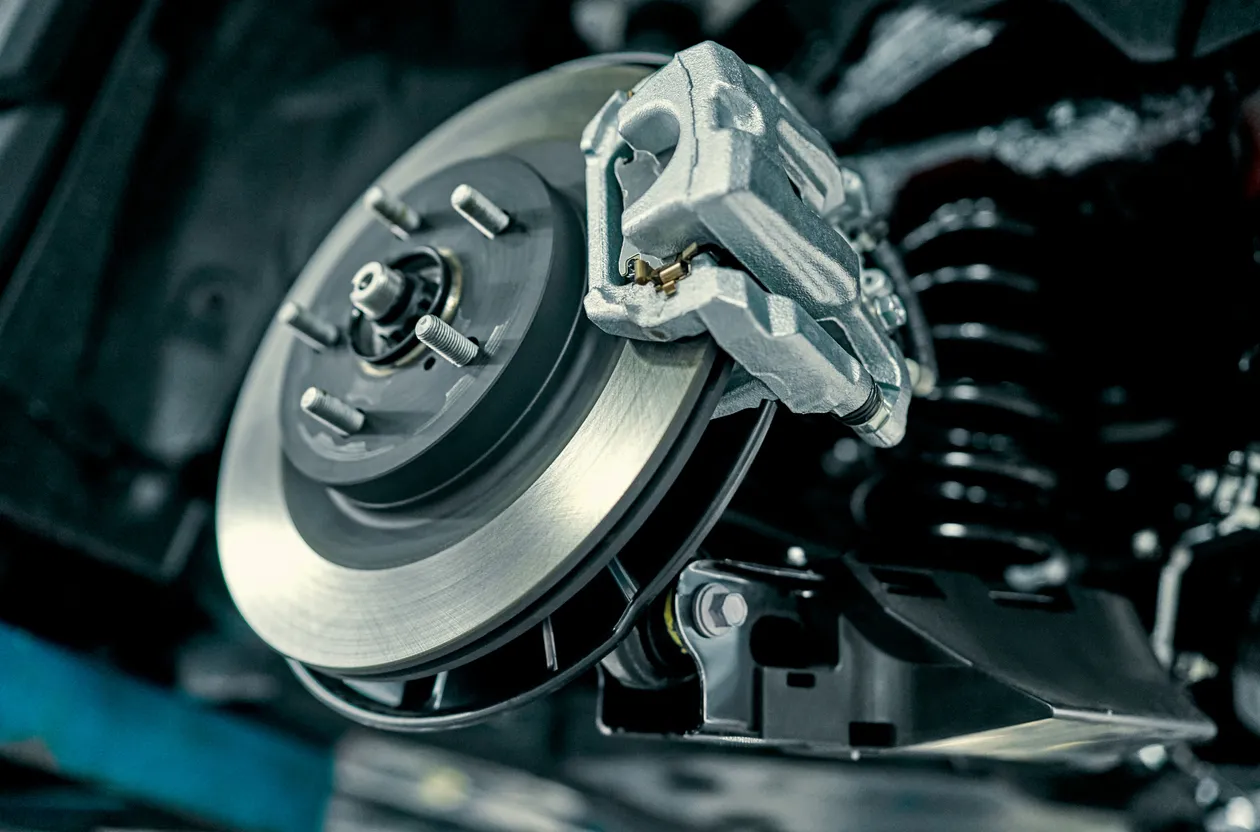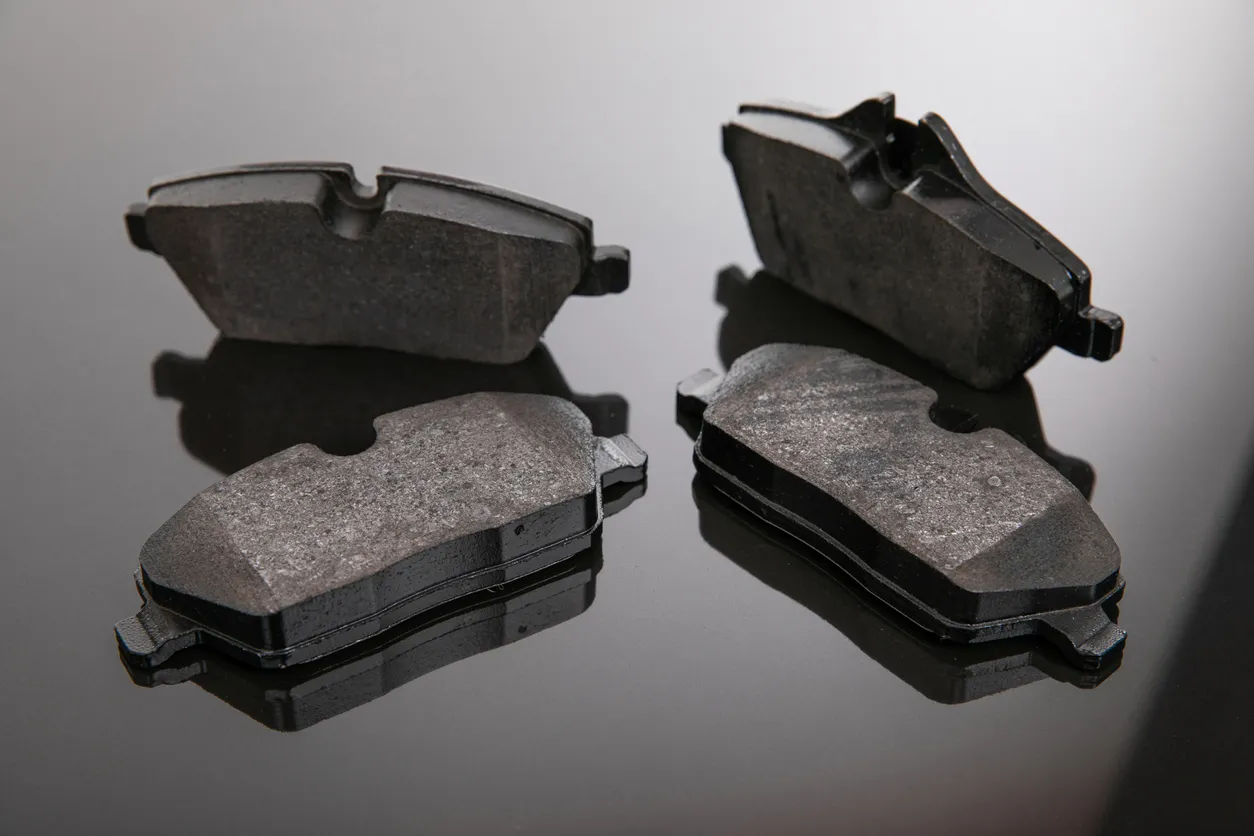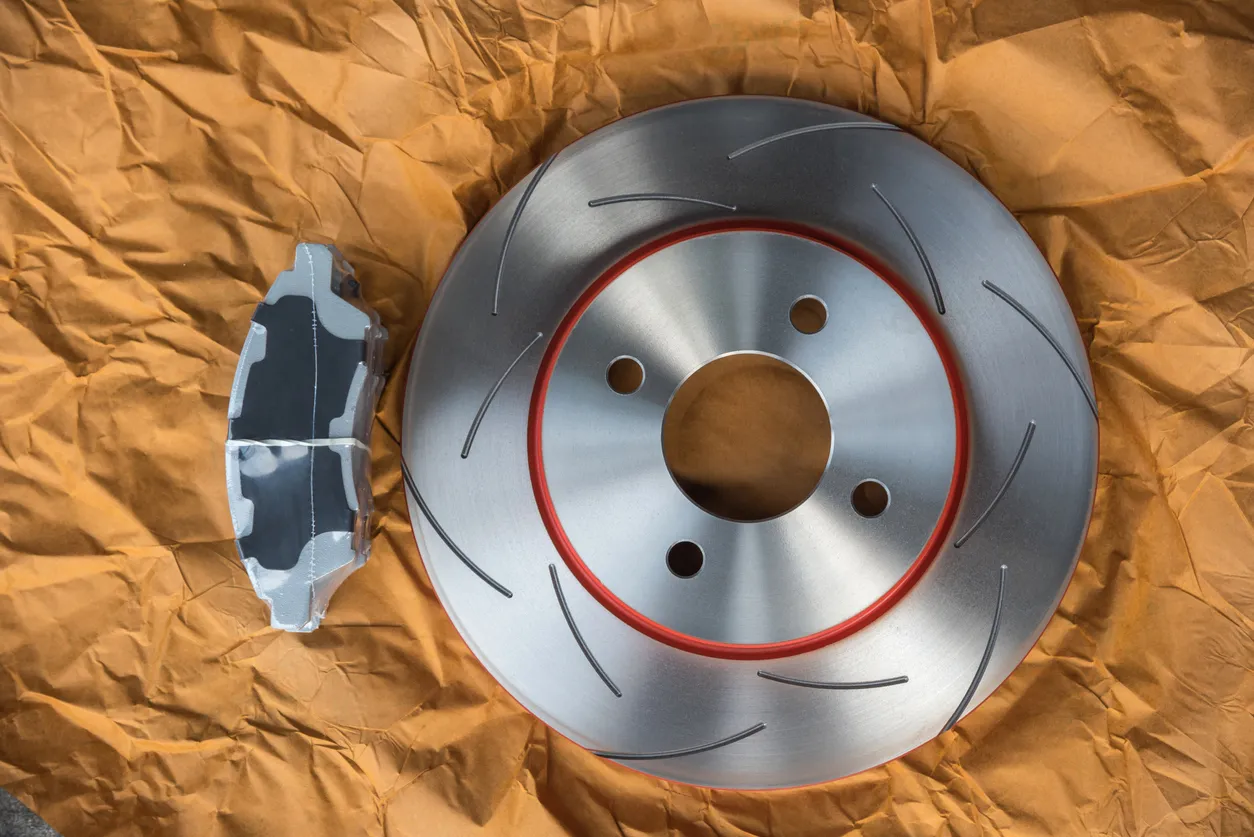What Are Disc Brakes And How Do They Work?

Most modern cars today come equipped with disc brakes designed to stop your vehicle. The disc brake system is simple to understand and easy to repair. Disc brakes work by using calipers to press brake pads against a spinning rotor, providing effective stopping power. It's a low-cost braking system that enables your vehicle to stop effectively in different driving conditions. Before you decide to do any work on the brake system of your vehicle, you should know what are disc brakes and how do they work.
How Do Car Brakes Work?
Before you ask, "what are disc brakes?", you should know the basics of how braking works in a vehicle. No matter what you drive, chances are good that you'll have to step on a brake pedal to slow down. The pedal generates the stopping force you need to slow down, but the pressure from the pedal is increased by a brake booster to give you much more stopping power when you're traveling at high speeds.
Your vehicle has a series of brake lines that travel from the master cylinder to each of the wheels. To stop your vehicle, you step on the pedal that controls the brake booster, and those devices send stopping power to each of the wheels around your vehicle. When your stopping pressure reaches the wheels, the brake pads will press into the spinning rotors, and your vehicle will slow and eventually stop. This is the straightforward idea behind disc brakes.
The Important Parts Of Disc Brakes
Car disc brakes rely on several parts that all other brake systems use:
- Pedal: The driver presses the pedal to initiate braking
- Brake booster: This component amplifies the force applied to the pedal
- Master cylinder: This takes your braking force, amplifies it, and sends it around your vehicle.
Once the stopping power arrives at a wheel, it operates one or more pistons within the caliper to press the brake pad against both sides of your spinning brake rotor.
The brake rotor is a disc of metal that's bolted to your wheels. As the brake pads are pressed into the rotors by pressure transmitted through the calipers, you are generating enough frictional force to stop your vehicle.
How Do Disc Brakes Work?
We've covered how a brake pedal, booster, and master cylinder work. Now let's look at how disc brakes work by examining the mechanism at each of the wheels around your vehicle. Once you step on the pedal and the brake fluid pressure is moved to each of the different wheels, your disc brake system can begin stopping your vehicle.
The hydraulic pressure in your brake lines presses out the pistons inside your caliper. The piston presses the brake pads, and the rotors come to a fast stop. These parts all work together to make your car disc brakes work properly.
Ceramic Versus Semi-Metallic Brake Pads

Whether you go with ceramic or semi-metallic brake pads, you have enough stopping power available to you to slow your vehicle. Ceramic pads are known to last longer, but they might squeak more often and generate a higher amount of sound. Disc brakes work by using either ceramic or semi-metallic pads, with the semi-metallic pads being ultra-quiet, which is one of the benefits you can look forward to if you choose this option.
Why Drilled and Slotted Rotors are Sometimes Used
Standard disc brake systems use smooth rotors to press the brake pads against. These work fine during infrequent stops, but once you start stopping very regularly, your rotors and brake pads have the potential to overheat and stop working properly. If your brake pads become too hot, they won't grip your rotor properly. There is also the chance that your equipment can be damaged if you don't contact the brake pads as regularly, and that can help your vehicle and other driving environments.
Drilled and slotted rotors are used on many race vehicles as a way to reduce the issues you face with overheating as you drive around. If you brake regularly and your brake parts get hot, you could replace them and keep going. Drilled rotors have special cross-drilled patterns that encourage air to flow through and reduce the overall temperature of the brake pads and the rotors. The same results can be achieved by investing in slotted rotors. These special rotors also dissipate heat and help you avoid issues with brake fade that other brake parts challenge you with.
A disc brake system is the number of brake systems used in cars and some trucks today. If you're asking "how do disc brakes work"?, spending time looking at the brakes and working with other people who know what they're doing is an excellent way to learn.

Many times when you replace the brake pads on your vehicle, you should be replacing the rotors as well. That is because the brake pads and rotors both wear out over time. Rotors are generally made to last longer than brake pads are, but you aren't likely to get through that many pad changes before you have to start thinking about getting a new set of rotors. Disc brakes work by using these rotors and pads in tandem to provide stopping power. Although rotors aren't cheap, when you upgrade both components, you'll enjoy superior performance overall.
Learning how disc brakes work gives you a real advantage when looking at different games. You can start to decide how you want to play and come up with strategies to use against the game to try and win. It seemed like the players that were on that field were ranked that well.
Even something as simple as the brake system on most vehicles is complicated. If you have trouble understanding what happens when you step on the brake, you should follow along with the explanation above to learn more about the process. It won't take long before you know what all of those disc brake components are used for and how to replace them as well. Start learning more information and use that to help you get the best vehicle for your needs.
Deciding on vehicle features and the components of the ride you get determines the driving experience you have. Spend time reviewing a car history report from the professionals here at GoodCar, and use that information to help you decide which car you should purchase. If you find a good option with excellent disc brakes, you should invest in it to get a vehicle that's safe and reliable to stop.
FREE Vehicle Search
- Accidents
- Problem Checks
- Title Records
- Recalls
- Values
- Specs
-
InfoPay, Inc. (dba GoodCar) is an Approved NMVTIS Data Provider
-
-












































